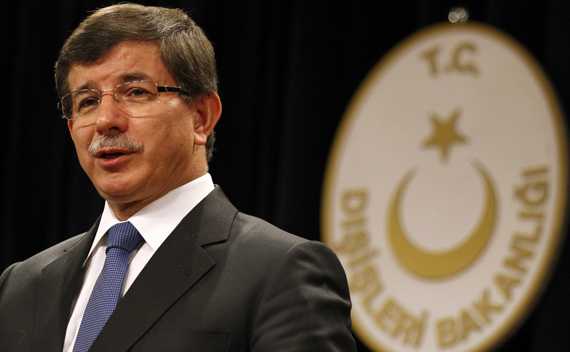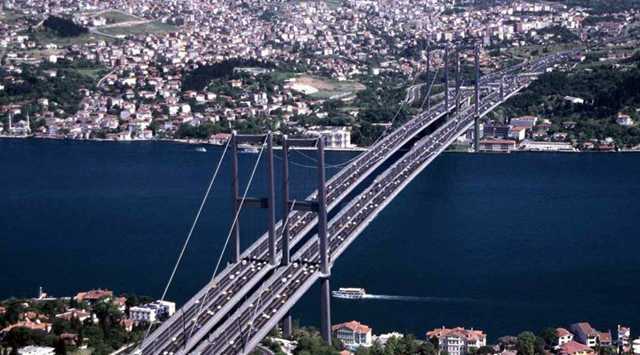Tuesday, 17 November 2009, 17:08
S E C R E T SECTION 01 OF 02 ANKARA 001654
SIPDIS
DEPARTMENT ALSO FOR EUR/SE
EO 12958 DECL: 11/17/2019
TAGS KNNP, PREL, TU, IR
SUBJECT: TURKEY: A/S GORDON PRESSES FM DAVUTOGLU ON IRAN
REF: ANKARA 1626
Classified By: Ambassador James Jeffrey, for reasons 1.4(b,d)
Summary
In a clearly difficult meeting, senior US diplomat Philip Gordon tries to persuade the Turkish foreign minister, Ahmet Davutoglu, that his efforts to mediate a compromise over Iran’s nuclear programme may not be entirely helpful or wise – and are effectively enabling the Iranians to play for time without serious negotiations. Gordon’s efforts do not meet with success. Key passage highlighted in yellow.
Read related article
1. (S) Iran dominated A/S Gordon’s 40-minute meeting November 12 with Foreign Minister Davutoglu. The FM had just gotten off the phone with El-Baradei and had discussed in detail the IAEA proposal to send Iran’s low enriched uranium to Turkey. El-Baradei had said he would “call Washington” that same morning. This had followed two long “harsh” sessions with the Iranians in Istanbul on Sunday evening. The Iranians have said they are willing to meet with Solana, but have told the Turks that they have serious problems with Cooper and the British. They have “more trust” in the U.S. The Iranians would also prefer to get fuel from the U.S. rather than the Russians.
2. (S) Davutoglu said the Iranians: a) are ready to send a delegation to Vienna to work out the specifics on this proposal; b) have given their “full trust” to Turkey; c) continue to face serious domestic problems inside Iran. He said the Turks actually see Ahmadinejad as “more flexible” than others who are inside the Iranian Government. Ahmadinejad is facing “huge pressure” after statements from some P5 members to the effect that a nuclear deal would succeed in weakening Iran,s nuclear capability — which is interpreted by some circles in Iran as a virtual defeat.
3. (S) Given this context, the Turks had asked Ahmadinejad if the core of the issue is psychological rather than substance. Ahmadinejad had said “yes,” that the Iranians agree to the proposal but need to manage the public perception. Accordingly, the Iranians are proposing that the first 400 kilos be transferred to Kish Island — thereby keeping it on Iranian soil — and would receive right away an equivalent amount (30-50 kilos) of enriched fuel. The second stage would focus on the management of Iranian public opinion, after which Tehran would proceed with the Turkey option for the remaining 800 kilos, probably in two tranches. Davutoglu said Baradei agreed to consider this.
4. (S) Davutoglu noted that he had spoken to NSA General Jones Wednesday, who had said that we should perhaps suggest to the Iranians that they transfer 600 kilos to Kish Island and 600 kilos to Turkey simultaneously. A/S Gordon said he could not give an official response to the proposal as this is the first time we heard it, but that he anticipates much skepticism about providing fuel to Iran before all the LEU has been taken out. It would be better to get all 1200 kilos out right away.
5. (C) Davutoglu noted that these are two different proposals. The first is Iran’s request for fuel for its nuclear reactor. Even if this takes place, he said, we still need to work on limiting Iran’s nuclear enrichment capability. If we succeed with this proposal, he said, it will create “confidence” and a “new momentum” and would allow room for negotiation.
6. (C) Noting that Davutoglu had only addressed the negative consequences of sanctions or the use of military force, Gordon pressed Davutoglu on Ankara’s assessment of the consequences if Iran gets a nuclear weapon. Davutoglu gave a spirited reply, that “of course” Turkey was aware of this risk. This is precisely why Turkey is working so hard with the Iranians. President Gul himself had spent two hours Sunday with Ahmadinejad in Istanbul.
7. (C) Gordon noted that while we acknowledge that Turkey can be helpful as a mediator, some of the Prime Minister’s recent public comments raise questions about how Turkey sees this issue. Davutoglu said he is aware of these concerns, but contended that the Guardian newspaper had not accurately presented its recent interview with the Prime Minister. The PM’s comments had been taken out of context. Erdogan had been asked if he views Iran as a friend. If he had said “no,” it would not have been possible to convince Tehran to cooperate on this latest proposal. Only Turkey can speak bluntly and critically to the Iranians, Davutoglu contended, but only because Ankara is showing public messages of friendship.
8. (C) Gordon pushed back that Ankara should give a stern public message about the consequences if UN resolutions are ignored. Davutoglu countered that Erdogan had given just such a statement in Tehran when he visited. He emphasized that Turkey’s foreign policy is giving a “sense of justice” and a “sense of vision” to the region. Turkey has provided a “third option” in addition to Iran and the Saudis (who he contended are viewed as “puppets” of the US). The result, he said, is that we “limit Iranian influence in the region.” We
ANKARA 00001654 002 OF 002
need a “pro-Western approach AND a sense of justice.”
9. (C) A/S Gordon has cleared this cable.
JEFFREY
“Visit Ankara’s Classified Web Site at gov.gov/wiki/Portal:Turkey”
via US embassy cables: US fails to dissuade Turkey from Iran ‘meddling’ | World news | guardian.co.uk.





